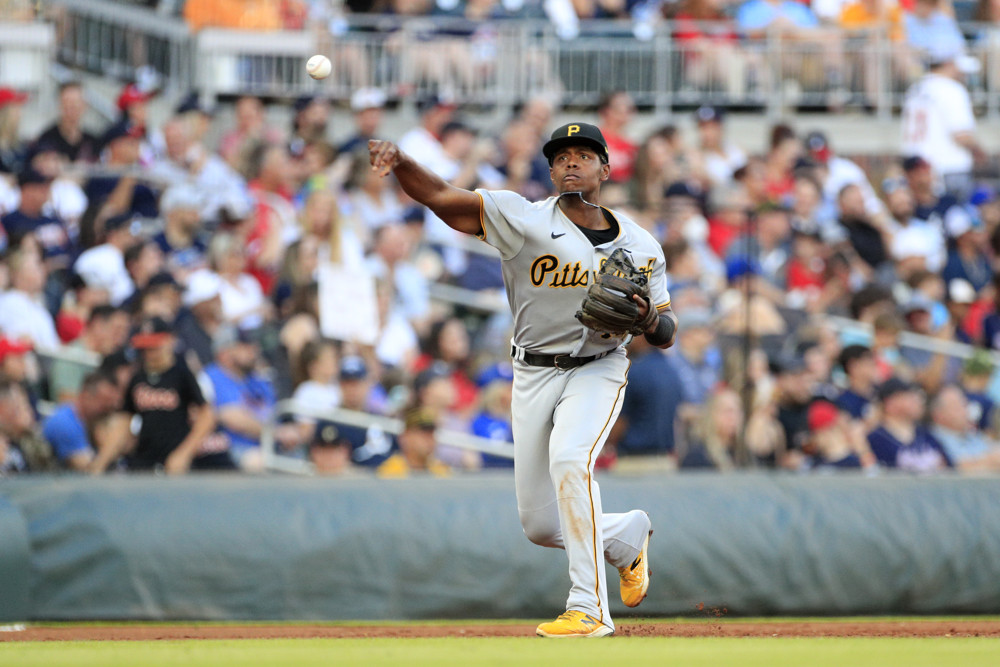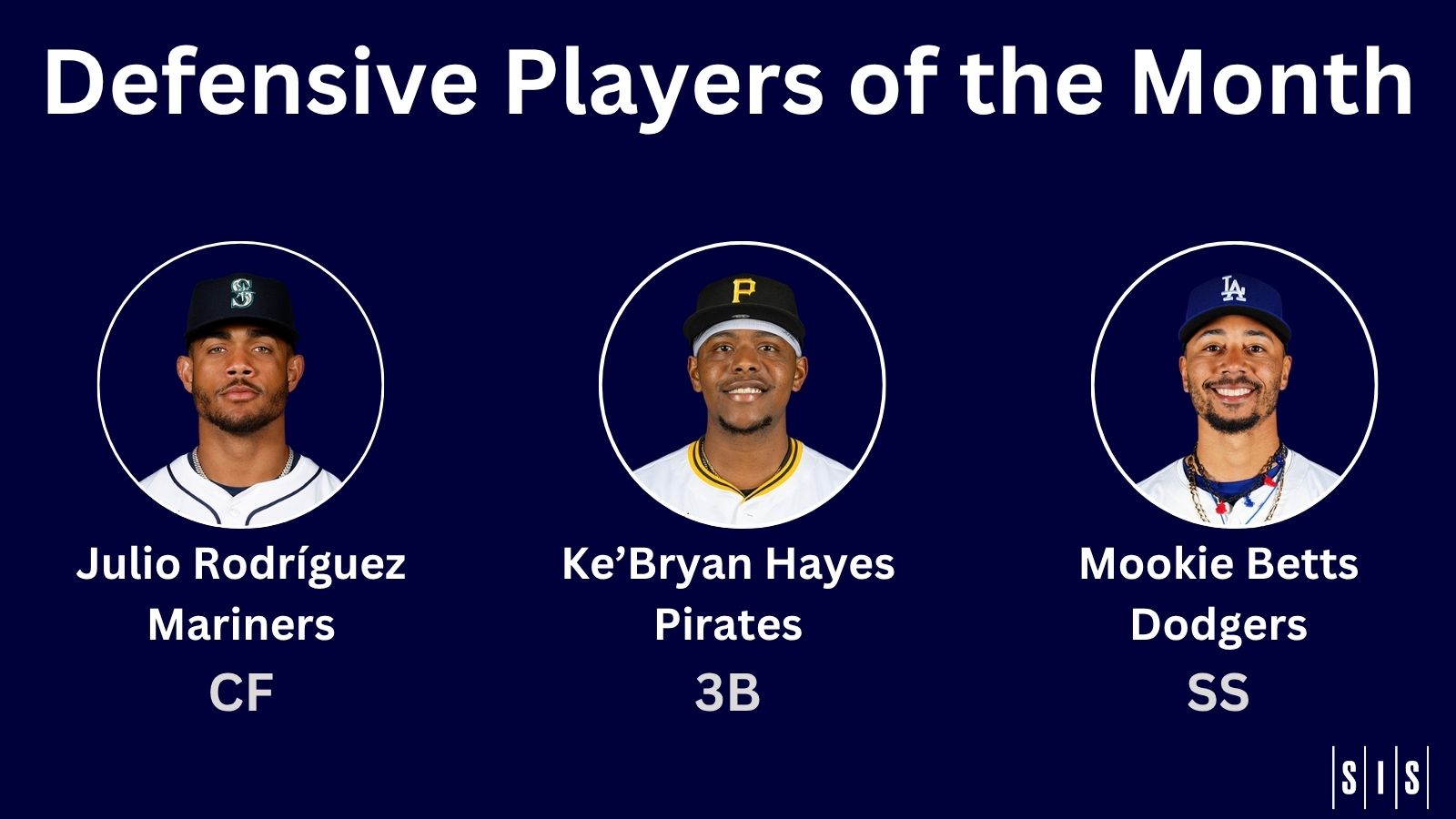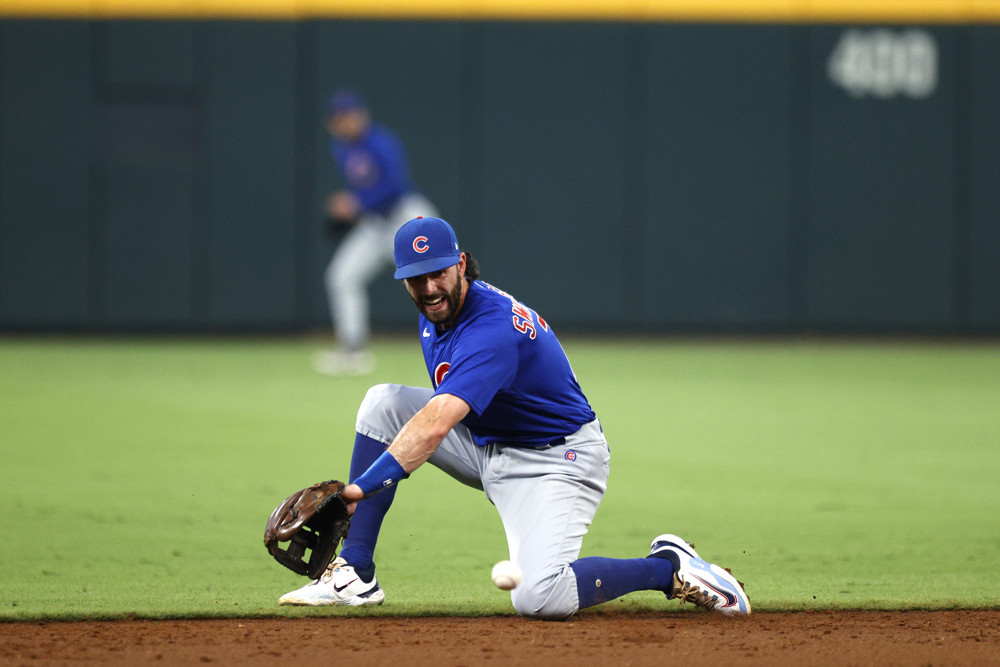With February being Black History Month, our baseball podcast featured Black guests who have made a significant impact on baseball. One of those is Pirates vice-president of player personnel Steve Williams.
Steve has been working in baseball scouting since 1988. He’s also the president of The Buck O’Neil Professional Baseball Scouts & Coaches Association, which you can learn more about at this link.
The conversation below between Mark Simon, SIS VP of Baseball Bobby Scales, and Steve Williams, has been edited for length and clarity. You can hear the full interview on our podcast (click here to listen).
Bobby: Steve Williams is on my Mount Rushmore of mentors, not just in the game, but just in my own life. There’s nothing I can’t call this man about.
Walk us through the early part of your career. How you got into scouting and how you got to helping Black folks inside the game get the opportunities they deserve.
Steve Williams: I never thought I would be a VP starting in 1988 as a young scout. I played at Clemson and my college coaches were very integral in my, in my life. My head coach was more of a father figure than anything else.
And he was really supportive of me as a player, as a person, becoming a man, just like my father was. Coach (Billy) Wilhelm and one of our assistant coaches who lived in Minnesota (heard) the Twins were looking for an area scout. I just finished playing as a college player. They recommended me. I interviewed with Terry Ryan in January 1988. I never thought he would call me on that Monday and offer me the opportunity to do it.
I didn’t have any experience. Back then, all those scouts were older. There weren’t many young scouts at that time. And Terry hired me, and I jumped into this business.
The first year my dad asked, ‘Hey, you know, how do you like this gig?’ I said, dad, if I could double my salary, I’d do this forever. And I’ve been very blessed, starting year 37, just enjoying the journey, doing things. I never thought a little country boy from North Carolina would do. Can I get to 40? It would be great.
One of my drives is to mentor, help develop people and that’s, you know, some of the things that we do with ‘The Buck.’ We’ve been doing ‘The Buck for 25-plus years.
It’s an organization, grassroots, Danny Montgomery, Fred Wright, and myself. We were area scouts in the Carolinas. We just wanted to get people together. We wanted to get like-minded Brown and Black people together. There weren’t many of us in the game at that time. You could count people in scouting that looked like me on one hand.
It was meant as more of a support staff, support group, you know, just, hey, what do you eat in this town? Where do you get a haircut in this town? Simple, little things. Our first meeting was 15 hours!
Fred Wright idolized Buck O’Neil and said let’s name this after Buck because Buck was one of the best ambassadors in baseball, Buck was one of the first Black coaches and scouts, and everybody loved Buck. We didn’t want to be known as a Black organization; we weren’t a Brown organization. We’re a baseball organization. Anybody that’s a baseball person can be a part of ‘The Buck.’ Our membership is very diverse. We have over 200 members.
We told Buck what we were, what our dream was, what we were trying to do, what our vision was for this group and the man just about jumped out of his chair. He understood what was needed in the game. What we were trying to do, he did a lot of by himself.
I met Buck in my first year scouting, in Sarasota, I was in awe. He started talking to me like I’d known him all his life. He gave me advice about how to work, being nice to people, being respectful, respecting the game, making sure you always look presentable. Years later, we brought ‘The Buck’ to Kansas City. He walked into the room; he didn’t realize there were 50 or so of us in the meeting. And they had to usher him out eventually because he didn’t want to stop talking to everybody.
Mark: What inspires you, watching baseball at your age?
Steve Williams: I still love to hunt for players. That’s always gonna be the biggest thing. To hunt for players, to hunt for talent, trying to walk into a ballpark and figure that out is still one of my biggest motivations.
My other passion is helping develop people.
Mark: Can you give us a favorite hunt-the-player story
Steve Williams: My favorite one is probably Orlando Hudson. When I was with Toronto, I was an area scout and I inherited Orlando’s draft-and- follow.
Every game I saw him play in those two years, I never saw him swing-and-miss. And if you know Orlando, he never stops talking as well. He’s one of the best instinctive baseball players that I’ve ever seen.
He went to Spartanburg Men’s Junior College in South Carolina. And when you talk to him, you see his passion for the game and his overall intelligence for the game. His baseball IQ was unbelievable. And just the way he played, he was always in the right spot, always around the game. He believed in himself tremendously.
I think a lot of people, because he was so vocal, they didn’t really understand how good a baseball player this man was. He had a tremendous career.
Every time I saw him play, it was just, wow, always in the right spot, always talking, always a leader around his people. And that’s how his career played out.
Bobby: You are a scout by trade. And I always tell people that the original form of data is what scouts see. Right? How have you evolved personally, combining what you know to be true in 37 years of being inside the game with what analysts say and what the data tells you about a player?
Steve Williams: This has always been a numbers game. What the evolution has been is that we’ve taken those numbers and we put them on steroids. And we just dive into them even more. When we take the scouting report and the objective information, how can we blend them together? When they don’t come together, the question that we have to continue to ask ourselves is why?
Why is this changing? Why is this different? What are we looking at? How can we dig into this a little bit more? What questions should our scouts be asking now at the ballpark? What questions should our analysts be asking our scouts? What should we be giving them to focus on?
For example, fastball playability. Normally, if I go to the ballpark and I’m sitting there and I’m watching a guy’s fastball play at the top of the zone, my eyes are telling me that this guy’s fastball plays different at the top of the zone.
Now, when I go back and open my computer, I want to see those same numbers. I want to see the same thing, the spin rate, vertical, all those things. What does it look like? Now, if it’s different from a scouting standpoint, if those numbers are different, there’s a history that his ball doesn’t play that way, the next day I need to ask why is it different?
Did he make an adjustment? Are they focusing on something different? What is the philosophy of the organization? So we take it as, this is another tool in our tool bag, the objective information, and try not to get, for our scouts to be over analytical, but we want them to understand the numbers so when they walk into the ballpark, they can be extremely focused and targeted about what we feel that we can influence. Every organization can influence different things. Some organizations are really good with hitters. Some organizations are really good with pitchers.
We want to take the information that we have and advance the evaluation skills that our scouts have as well.
It’s another tool. It’s not the end all, be all. All this technology, all this information is still very new, but we’re trying to blend all of it together.
Mark: To close, what more would you like to say about ‘The Buck’ and its goals, which are supporting the Negro Leagues Baseball Museum, promoting baseball in the inner cities by educating coaches and mentoring players through annual clinics, awarding scholarships to students who have excelled in academia and who exhibit an interest in baseball and continual education of scouts and coaches within the association.
Steve Williams: We have reached those goals. We talk about giving back to the community. We’ve seen a shift in ‘The Buck.’ We’ve seen a shift in the membership of ‘The Buck,’ which has gotten younger. College coaches and high school coaches are coming to our meetings and we’re feeding them information that they need to be better at coaching younger players as well.
So, we’re getting younger coaches, younger scouts, younger front office execs to be able to mentor, to continue to do that. We talk about our coaching staffs from our college coaches to our high school coaches. They’re coming to the meetings and we’re feeding them the information that they need to be better and learn how to coach these young players as well.
Between going into communities and going to clinics, with the young men and coaching staffs we’ve helped, we’ve probably produced over 400 young players that have been touched by ‘The Buck. We meet once a year, but we’re in touch with our membership all year.
Bobby: Steve’s impact on this game in 2024 is immeasurable. If you’re in a scouting situation, in a ballpark, if you say ‘Steve Williams,’ someone there is gonna know who he is.
And it’s not because he’s famous, it’s because he’s been unbelievably impactful in helping guide the careers of so many people inside this game, on the field, off the field, in the front office.
It’s been my contention that Steve Williams could have, could have been a GM many years ago, 10, 15 years ago, because of his ability to lead people, to make decisions that are driven by information and not emotion and just his command of a room. His ability to command a room is legendary. He is one that’s able to get consensus. People may not like the outcome, but they respect him.
Listen to the full interview at the link below or click here to listen on other podcast apps.



